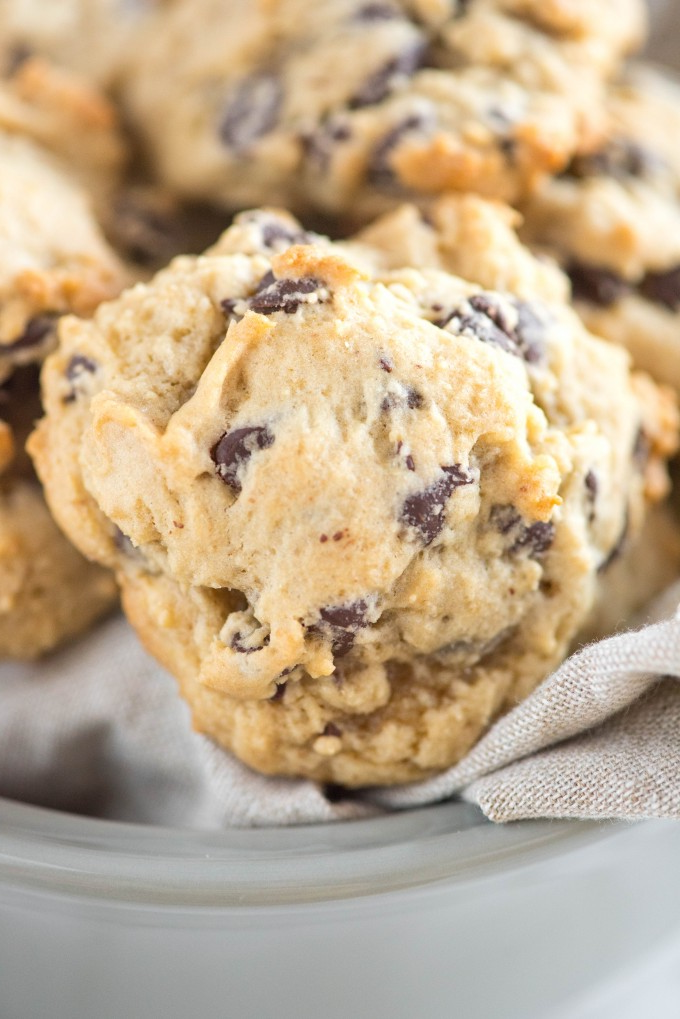Many people want to know what makes cookies moist and chewy, but they don't know what to look for. While the perfect cookie might be soft and snappy, it might be cakey or crispy. The texture depends on the flour, sugar, and other ingredients. The secret to a chewy cookie lies in the moisture of the dough. This article will discuss some of the secrets to making your cookies moist and chewy.
A cookie that's moist and chewy will be dense, meaning that the dough has a high sugar content. The longer the dough rests, the more moisture it has. Professional bakers usually rest their dough for a few days, but not more than a week. Remember to store your cookies in an airtight container. Using waxed paper and placing them in the fridge can help them keep their moisture.
Another tip to keep your cookies moist and chewy is to use different types of bread when baking. While white bread tends to be the softest, it won't change the flavor profile of your cookies. Try a different bread if you want your cookies to remain moist and chewy. It's easy to make the wrong decision when baking. Using the wrong type of bread can lead to flat, dry cookies.
Another trick to keep your cookies soft is to use two kinds of measuring utensils. You can use one for the wet ingredients, such as butter, and another for the dry. Although they hold the same volume of ingredients, using the wrong type will mess up the ratios and leave your cookies without the chewiness that they deserve. And, as a bonus, melted butter doesn't have gluten in it!
When baking cookies, you can use different types of sugar and butter. Brown sugar is moister and packs down into the measuring cup while white sugar pours rapidly. Moreover, the amount of water in butter will make your cookies chewy. Those two ingredients work together to make the perfect cookie. They also need to be different proportions if you want to keep your cookies soft and chewy. But there are some tips that will keep your cookies moist and soft!
A good chewy cookie will have a soft center and brown edges. It will have been baked for the correct amount of time, but this will vary slightly from recipe to recipe. The amount of water will determine how thick your cookies will be. In addition to the type of butter, the type of flour you use will also determine the texture of your cookies. All-purpose flour is more moist than brown sugar, and the latter will make your cookies tough.
The right amount of butter and eggs will make your cookies moist and chewy. The butter in your cookies should be soft and well-mixed. If the butter is too soft, it will make your cookies dry. Likewise, a thick cookie will be harder and more crumbly. Keeping the butter and egg mixture cool will prevent your cookies from drying out. In the end, there are three things that can help make your cookies moist and chewy.
A dense cookie will have more moisture. It will be thick and chewy if it has more butter. It will be less dense if it is made with less butter. You can also make your cookies thick and puffy by using different types of baking utensils. However, you must make sure the ingredients are well-mixed. If you don't use the right amount of butter, your cookies will not be as moist and delicious.
When baking cookies, a dense cookie has a soft center and crispy edges. The ingredients that make a cookie dense and chewy are: o Butter is the main ingredient in most cookies. This ingredient also makes them softer and more dense. It also adds moisture and flavor to your cookies. You can substitute white sugar for brown sugar to make your cookies moist and chewy. Adding molasses to your cookie batter is a great way to make your cookies dense and chewy.

